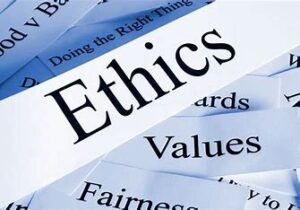In the age of ever-advancing technology, we find ourselves faced with a conundrum: the ethics of technology. As we delve deeper into the realms of artificial intelligence, virtual reality, and genetic engineering, it becomes crucial to question the ethical implications of these advancements. However, one aspect that often goes overlooked is the influence of monotheistic beliefs on these ethical debates and how politics further complicates the intertwining web.
 Monotheistic beliefs, such as those found in Judaism, Christianity, and Islam, have historically played a significant role in shaping societal norms and values. These religious doctrines often provide a moral compass for their followers, outlining guidelines on what is considered right and wrong. When brought into the realm of technology, the ethical implications become even more complex.
Monotheistic beliefs, such as those found in Judaism, Christianity, and Islam, have historically played a significant role in shaping societal norms and values. These religious doctrines often provide a moral compass for their followers, outlining guidelines on what is considered right and wrong. When brought into the realm of technology, the ethical implications become even more complex.
One area in which monotheistic beliefs intersect with technology ethics is the notion of human enhancement. Advances in biotechnology and gene editing have raised questions about the limits of human intervention in the natural order of life. Monotheistic traditions emphasize the sanctity of life, but they also stress human stewardship and the pursuit of knowledge. Thus, navigating the ethical landscape of enhancing human capabilities becomes a delicate balancing act between respecting the natural order and fulfilling our divine mandate to improve the world.
Furthermore, monotheistic beliefs can also influence perspectives on privacy and surveillance in the digital age. In a world where our every move is tracked and monitored, questions arise about the right to privacy and autonomy. Monotheistic traditions emphasize the inherent dignity and worth of every individual, yet authoritarian regimes often use technology to infringe upon these rights. The interplay between religious principles and political power becomes evident, as some governments use technological advancements to further their control and suppress dissent.
The connection between monotheistic beliefs and technology ethics also extends to issues of economic justice. In an increasingly interconnected world, technology has the power to bridge gaps and alleviate poverty. However, it also has the potential to exacerbate wealth inequality and disrupt traditional industries. Monotheistic teachings emphasize the importance of caring for the marginalized and vulnerable, but the pursuit of profit can sometimes overshadow these values. Therefore, discussions on the ethics of technology cannot be separated from conversations about economic systems and the role of politics in distributing resources.
In conclusion, the intertwining of monotheistic beliefs and politics creates a complex tapestry of ethical considerations in the realm of technology. As we venture further into a world shaped by artificial intelligence, genetic engineering, and digital connectivity, it is essential to reflect on the moral implications of these innovations. By integrating untapped perspectives and engaging in enlightened discussions, we can navigate these ethical dilemmas with greater awareness and responsibility. Let us embrace the potential of technology while ensuring it aligns with our core values as shaped by monotheistic beliefs and an ethical political framework, ultimately striving for a more just and compassionate future.
